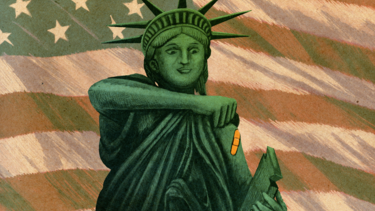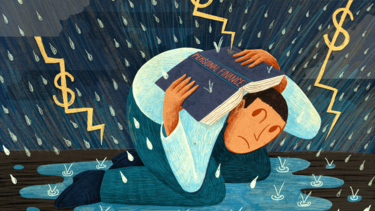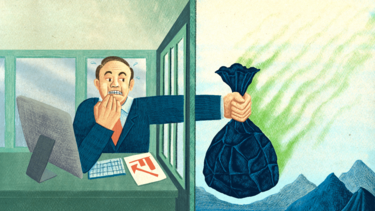Research
A Long-Term Solution to Insuring the Sick
In a new paper, Yale SOM’s Soheil Ghili and his co-authors show that longer health insurance contracts could protect consumers who are or become ill against sudden premium spikes.

Building Trust with the Algorithms in Our Lives
Consumers are wary of the recommendations made by algorithms. But according to new research co-authored by Yale SOM’s Taly Reich, showing that an algorithm can learn—that it improves over time—helps to resolve this distrust.

Can AI Make Economic Predictions by Reading the Newspaper?
In a new study, a team led by Yale SOM researchers devised a way to distill the text of the Wall Street Journal into numerical indicators, which could help policymakers predict how the business cycle will unfold over the coming months and years.

Once COVID Vaccines Were Introduced, More Republicans Died Than Democrats
A new Yale study co-authored by SOM’s Paul Goldsmith-Pinkham found that once vaccines were introduced, the rate of excess deaths among Republicans and Democrats began to diverge.

Is the Art Market Fair to Women?
Why do women artist appear less frequently at auctions and in galleries? A study of Yale Art School graduates over 120 years, co-authored by William Goetzmann of Yale SOM, suggests that institutions pose a bigger obstacle than market participants.

A Yale Economist Read 50 Personal Finance Books. He’s Got Some Notes.
Personal finance gurus frequently depart from conventional economic wisdom, Yale SOM’s James Choi discovered, but their advice isn’t all bad.

Short-Term Earnings Goals Drive More Pollution, Especially for Green Companies
Yale SOM’s Frank Zhang and Jacob Thomas found that firms might increase their pollution when they’re struggling to meet earnings targets—and that firms with a history of environmental responsibility are most likely to engage in this pattern.

When Counting Calories, Words Are More Valuable than Pictures
A new study co-authored by Yale SOM’s Gal Zauberman finds that apps that track calories with a photo are appealing, but manually logging your meals is actually more effective. The results offer a cautionary tale about giving consumers what they think they want, he says.

Stablecoins Survived ‘Crypto Winter,’ But That Doesn’t Make Them Safe
Cryptocurrencies such as Tether, which is pegged to the dollar, have held on as others crashed. But according to new research by Yale SOM’s Gary Gorton, these “stablecoins” still pose major risks to the global financial system.

How Grammy Wins and Losses Shape Artists’ Creative Trajectories
Prof. Balázs Kovács and his co-authors found that Grammy winners tend to branch out in new directions afterward—but nominees who don’t win become more creatively cautious.
